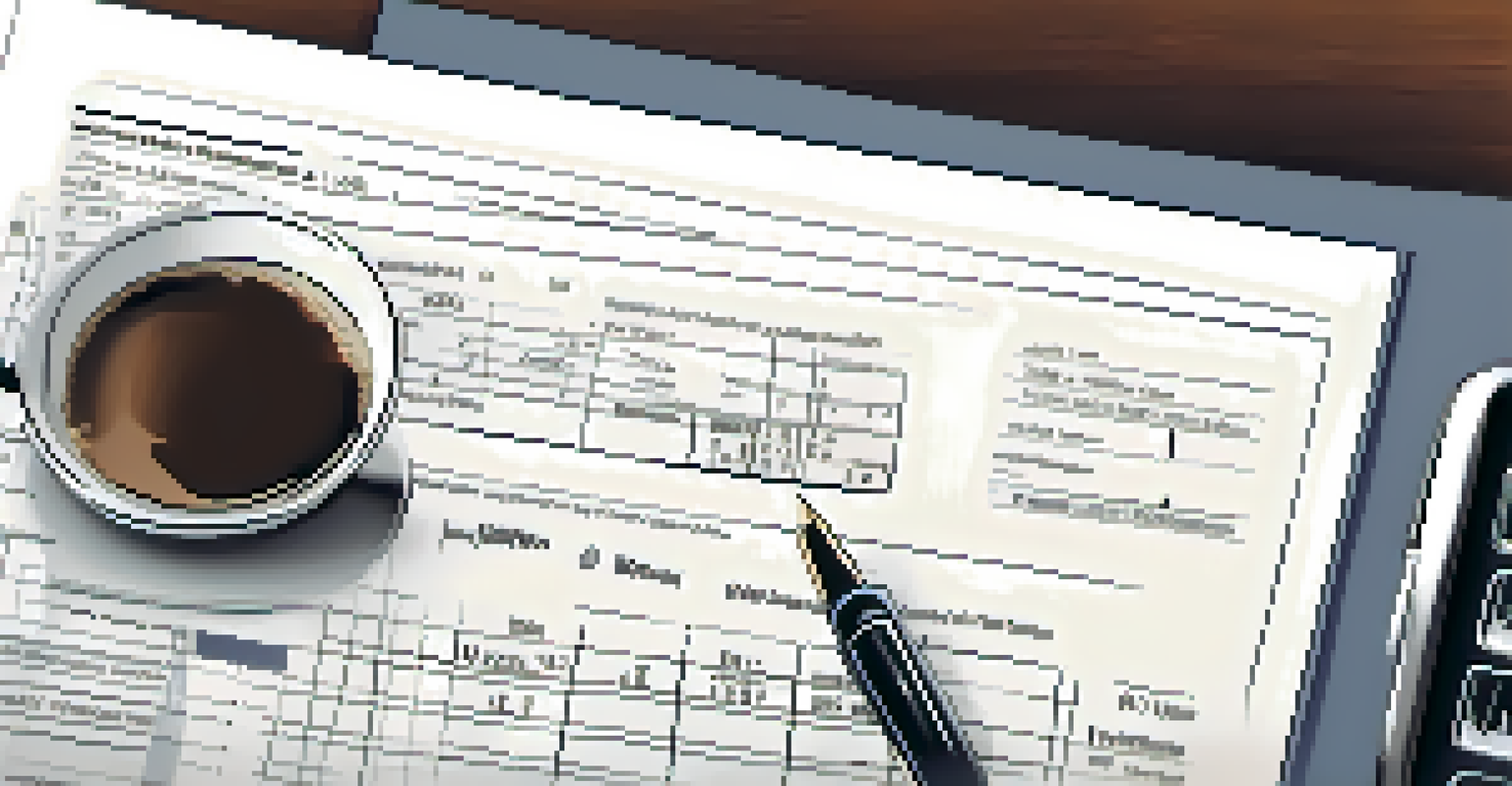Understanding Home Equity Loans: Pros and Cons Explained

What is a Home Equity Loan and How Does It Work?
A home equity loan allows homeowners to borrow against the equity they've built in their property. Essentially, it's a second mortgage where you use your home as collateral. This type of loan typically offers a lump sum of money, which you repay over a fixed term, usually at a fixed interest rate.
A house is made of walls and beams; a home is built with love and dreams.
To understand home equity loans, it's important to know how equity is calculated. Home equity is the difference between your home's current market value and the outstanding mortgage balance. For example, if your home is worth $300,000 and you owe $200,000, you have $100,000 in equity.
These loans can be used for various purposes, such as home improvements, debt consolidation, or even funding major life events. However, it’s crucial to remember that failing to repay a home equity loan can result in losing your home, making it a significant financial commitment.
The Pros of Home Equity Loans: Key Advantages
One of the main advantages of a home equity loan is the lower interest rates compared to unsecured loans. Since the loan is secured by your home, lenders typically offer better rates, which can save you money in the long run. This can be particularly beneficial for large expenses, like renovations or education costs.

Another benefit is the potential tax deductions available on the interest paid, depending on how you use the funds. For instance, if you use the loan for home improvements, you may be able to deduct the interest on your tax return, providing additional savings.
Understanding Home Equity Loans
Home equity loans allow homeowners to borrow against their property's equity, using it as collateral for a lump sum repayment over a fixed term.
Lastly, home equity loans can offer a fixed repayment schedule, making it easier to budget for monthly payments. Knowing exactly how much you owe each month can provide peace of mind as you work towards paying off the loan.
The Cons of Home Equity Loans: Key Disadvantages
Despite the benefits, home equity loans come with risks. One major downside is the potential for foreclosure if you fail to make your payments. Since your home is collateral, missing payments could lead to losing your property, which is a significant consequence.
Before you borrow money from a friend, decide which you need more.
Another downside is the fees associated with obtaining a home equity loan. Closing costs, appraisal fees, and other charges can add up, making the loan more expensive than it initially appears. It's essential to factor these costs into your overall budget when considering a loan.
Additionally, borrowing against your home equity can reduce your financial flexibility. If property values decline or if you need to sell your home, you might find yourself in a challenging financial situation, especially if you've taken out a large loan.
Determining If a Home Equity Loan Is Right for You
Deciding whether a home equity loan is suitable for you involves evaluating your financial situation and goals. It's crucial to consider how much equity you have in your home and whether you can comfortably manage the additional debt. For example, if you have a stable income and plan to use the funds wisely, it could be a good option.
You should also assess your reasons for borrowing. If you're planning home improvements that will increase your property value, a home equity loan might make sense. However, if you're considering it primarily for discretionary spending, it may be wise to rethink your decision.
Weighing Pros and Cons
While home equity loans offer lower interest rates and fixed repayment schedules, they also carry risks like foreclosure and additional fees.
Lastly, consult with a financial advisor or mortgage specialist to discuss your options. They can help you analyze your financial health and determine if a home equity loan aligns with your long-term objectives.
Comparing Home Equity Loans to Other Financing Options
When considering a home equity loan, it’s essential to compare it with other financing options like personal loans or home equity lines of credit (HELOCs). Personal loans are typically unsecured and may come with higher interest rates, but they don’t risk your home as collateral.
A HELOC, on the other hand, works more like a credit card, allowing you to borrow as needed up to a certain limit. This can be beneficial for ongoing expenses, but it usually comes with variable interest rates, which can fluctuate over time. Understanding these differences can help you make an informed choice.
Ultimately, the best option depends on your financial needs and how you plan to use the funds. Evaluating the pros and cons of each can lead you to the right decision for your circumstances.
Tips for Getting the Best Home Equity Loan Rates
To secure the best rates on a home equity loan, start by improving your credit score. Lenders typically offer better interest rates to borrowers with higher credit scores, so taking steps to boost your score can lead to significant savings. Paying down debts and ensuring timely bill payments can help elevate your score.
Shopping around is another critical step. Different lenders offer varying rates and terms, so it's wise to compare offers from multiple institutions. Online calculators and comparison tools can make this process easier, helping you find the best deal.
Avoiding Common Mistakes
To make the most of a home equity loan, borrowers should avoid borrowing more than necessary, read the fine print, and take their time in decision-making.
Lastly, consider the timing of your application. Interest rates fluctuate based on economic conditions, so applying when rates are low can result in better loan terms. Staying informed about market trends can give you an edge in securing a favorable rate.
Common Mistakes to Avoid with Home Equity Loans
One common mistake is borrowing more than you need. It can be tempting to take out a larger loan for 'just in case' scenarios, but this can lead to unnecessary debt. Always evaluate your needs carefully and borrow only what you can comfortably repay.
Another mistake is overlooking the fine print. Many borrowers focus on the interest rate but ignore other important terms, such as fees and penalties. Taking the time to read and understand the loan agreement can prevent unpleasant surprises down the line.

Finally, don’t rush into a decision. It's essential to take your time and assess your options thoroughly. Discussing your plans with a financial advisor can provide valuable insight and help you avoid potential pitfalls.